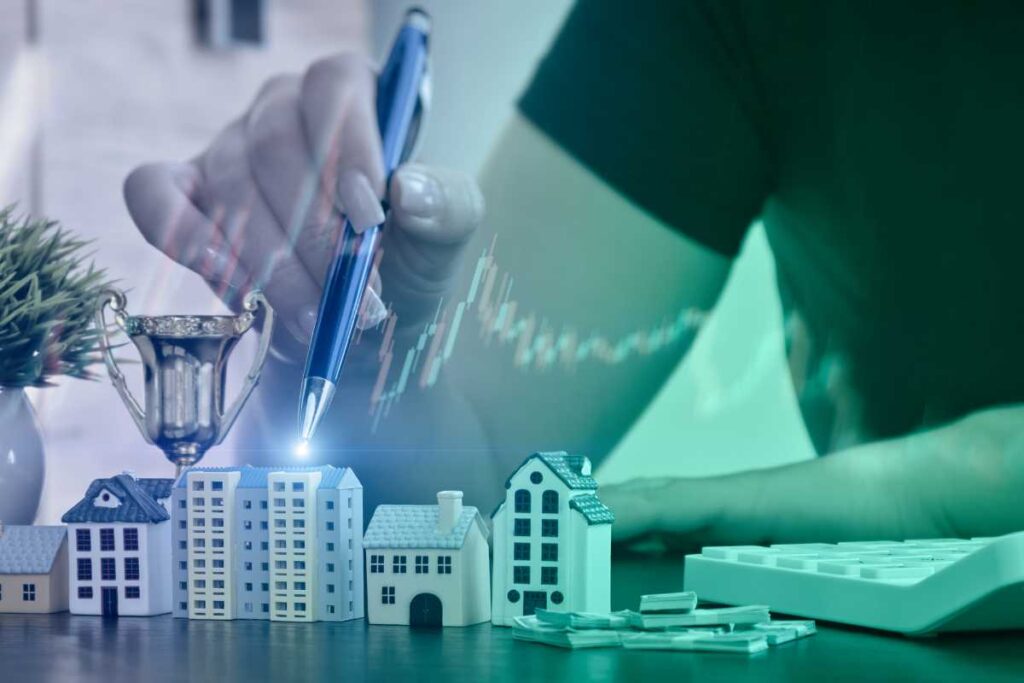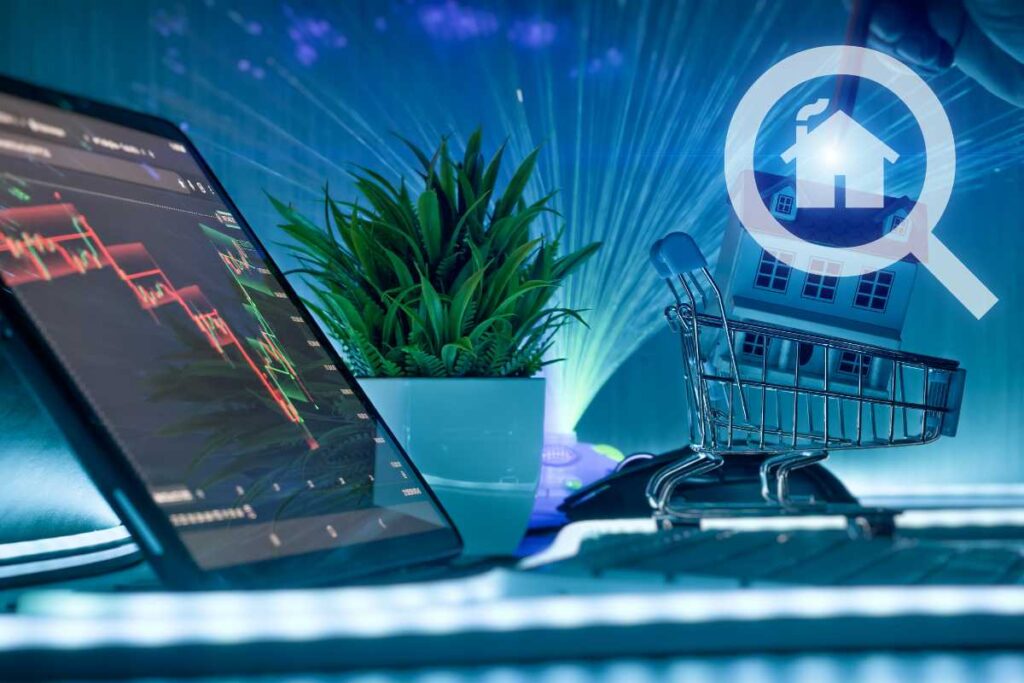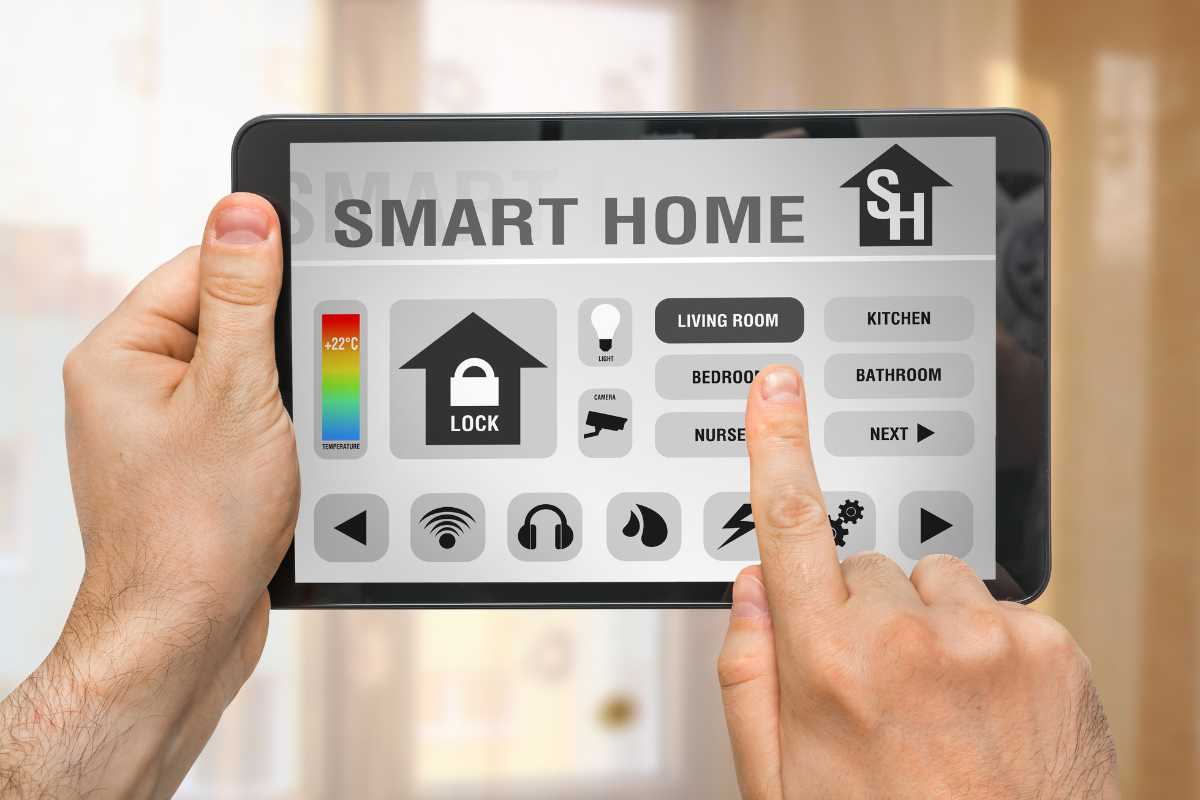The real estate industry, long defined by bricks, mortar, and location, is undergoing a seismic shift. No longer is the appeal of a property solely determined by square footage or neighborhood prestige. Today, technology-driven innovation is redefining what makes a home valuable, with Internet of Things (IoT) devices leading the charge. From intelligent thermostats to smart security systems, IoT is not just enhancing the way we live, it’s transforming real estate investment strategies, property valuations, and the very definition of a desirable home.
Understanding Smart Homes and Internet of Things (IoT) in Real Estate
A “smart home” is more than just a sleek, tech-filled dwelling; it’s a connected ecosystem that allows homeowners to monitor, control, and automate aspects of their living environment. IoT devices, sensors, cameras, smart appliances, and voice assistants, communicate with each other and the homeowner through the internet, enabling real-time monitoring and control.
In real estate, this means a home is no longer just a static asset; it’s an adaptable, data-rich environment. From energy consumption patterns to security metrics, IoT generates insights that influence property management, tenant satisfaction, and investment returns.
The Rise of Smart Homes: Market Trends and Consumer Demand
The adoption of smart home technology has skyrocketed in the last decade. According to Statista, global smart home device revenue is expected to reach over $150 billion by 2025, driven by increasing consumer demand for convenience, security, and energy efficiency.

Millennials and Gen Z, who now dominate the homebuying market, are particularly drawn to technology-integrated properties. For them, smart homes represent lifestyle flexibility, sustainability, and long-term cost savings. Meanwhile, investors recognize that smart homes attract higher rents, faster sales, and stronger resale value.
This dual appeal, consumer convenience and investment potential, is fueling a new era in real estate where IoT is not just an amenity but a strategic asset.
Internet of Things (IoT) Features That Increase Property Value
Several IoT innovations directly influence property attractiveness and market value:
1. Energy Efficiency and Smart Utilities
Smart thermostats, automated lighting, and energy-monitoring systems allow homeowners to optimize energy usage. Reduced utility costs are a strong selling point for buyers and renters alike. Moreover, energy-efficient homes often qualify for government incentives, increasing their financial appeal.
2. Enhanced Security and Safety
Smart locks, surveillance cameras, motion sensors, and AI-powered security systems offer peace of mind while lowering insurance premiums. Security-conscious buyers are willing to pay a premium for homes with integrated, reliable systems.
3. Home Automation and Convenience
From smart refrigerators and washing machines to voice-activated assistants controlling lighting and entertainment, automation enhances lifestyle convenience. The “wow factor” of seamless, interconnected devices often translates to higher property valuation.
4. Remote Monitoring and Maintenance
IoT sensors can detect water leaks, HVAC malfunctions, and other maintenance issues before they become major problems. This proactive monitoring increases a home’s longevity and reduces unexpected expenses, making the property more attractive to both buyers and investors.
Investing in Smart Homes: Opportunities and Strategies
Investors are increasingly viewing IoT integration as a critical factor in property evaluation. Smart homes command higher rents, sell faster, and generally appreciate faster than traditional homes. Here’s how IoT is shaping investment strategy:

1. Premium Rentals for Tech-Savvy Tenants
Properties with integrated smart home systems appeal to younger, tech-savvy tenants willing to pay more for convenience and security. Landlords who invest in IoT upgrades often see immediate ROI through higher rental yields.
2. Reduced Operational Costs
Smart sensors and automation reduce utility bills and maintenance costs. Investors who incorporate these systems into their properties can pass on some savings to tenants while maintaining profitability.
3. Differentiation in Competitive Markets
In saturated urban markets, Internet of Things (IoT) integration serves as a differentiator. A property equipped with smart features stands out on listing platforms, attracting higher-quality tenants or buyers.
4. Data-Driven Property Management
IoT devices generate vast amounts of data on usage patterns, security alerts, and energy efficiency. Investors can leverage this data for predictive maintenance, market analysis, and strategic upgrades, maximizing returns over time.
Challenges in Smart Home Investment
While Internet of Things (IoT) presents enormous opportunities, investors should be aware of challenges:
- Upfront Costs: Installing IoT devices can be expensive, and ROI is sometimes long-term rather than immediate.
- Cybersecurity Risks: Connected devices can be vulnerable to hacking, requiring robust security protocols.
- Technology Obsolescence: IoT devices can become outdated quickly, requiring ongoing upgrades to stay relevant.
- User Adaptation: Some buyers or tenants may be hesitant to adopt technology-heavy homes, limiting appeal in certain demographics.
Investors who carefully evaluate these risks and adopt scalable, future-proof solutions will benefit from the long-term value of smart home investments.
The Future of IoT in Real Estate
The integration of Internet of Things (IoT) into real estate is still in its early stages, but the trajectory is clear: smart homes will become the standard, not the exception. Future developments include:

- AI-Powered Home Management: Homes that autonomously adjust temperature, lighting, and security based on resident behavior.
- Blockchain for Smart Transactions: IoT data could be used to verify property conditions, streamline transactions, and enhance transparency.
- Sustainable Smart Homes: Greater focus on reducing carbon footprint with real-time energy monitoring and eco-friendly systems.
- Integration with Smart Cities: IoT-enabled homes connecting to broader urban infrastructure for traffic management, energy grids, and public safety.
For real estate investors, early adoption and integration of these technologies will be a competitive advantage, influencing long-term profitability and market positioning.
Conclusion: The Investment Imperative
The advent of Internet of Things (IoT) has shifted the real estate landscape from a traditional, location-centric model to a technology-driven, data-rich ecosystem. Smart homes are no longer just a luxury, they are a strategic investment that offers higher yields, faster sales, and enhanced tenant satisfaction.
Investors who embrace IoT-enabled properties today position themselves at the forefront of a market transformation, combining lifestyle innovation with financial foresight. In a world where connectivity and convenience define value, the homes of tomorrow are not just built, they are engineered for intelligence, efficiency, and growth.
As technology continues to evolve, one truth remains clear: smart homes are smarter investments, and the properties that adapt to this connected future will set the standard for real estate success in the years to come.

